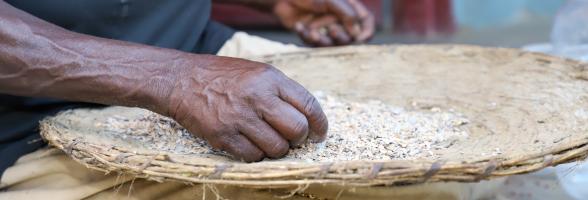CONTEXT
Uganda is currently hosting over 1.5 million refugees who are originally from South Sudan
(63,3%), the Democratic Republic of Congo (32.4%) and from other nationalities including Somalia (4,3%). These refugees are hosted in 13 settlements in Northern Uganda (for the South Sudanese) and Western Uganda (for the Congolese).
The refugee population has constantly increased due to war and persecution in South Sudan and the Democratic Republic of the Congo and figures as documented by December 2022 indicate across all three settlements of Imvepi, Rhino and Bidibidi respectively 133. 336, 66.525 and 190,256 refugees respectively with an estimation of children (0-11 years old) constituting 40% of the total population.
Based on a need assessment carried out by Oxfam last year, it was found that the primary source of income for refugees continues to be humanitarian aid. The assessment revealed that among the refugee population, 52% of the refugees had acceptable food consumption scores while 35% had borderline and 13% had poor food consumption scores. 20% of the refugees had not adopted livelihood copying strategies, 35% had stressed Livelihood coping strategies, 25% had Crisis livelihood coping strategies and 20% had Emergency Coping Strategies.
Unfortunately, the recent decision by the World Food Programme to reduce food assistance by 60% will exacerbate the challenging food security situation in refugee settlements. The consequences of this reduction will disproportionately affect women and children, intensifying their vulnerability thus informing the implementation of a project by Oxfam in Uganda to improve on the current situation.
ABOUT THE PROJECT
With funding from the Fred Foundation, Oxfam in Uganda is implementing a project to support refugee farming communities in the refugee hosting settlements of West Nile including Imvepi, Rhino Camp and Bidibidi.
The project will follow the Uganda National Development Plan III, the ReHoPe Strategy, the Food Security and Livelihoods Strategies 2022-2025, and the Skilling Uganda BTVET Strategic Plan 2012/3 – 2021 to provide communities with agricultural inputs and other resources to allow them to start rebuilding livelihood assets to empower crisis-affected populations, particularly women and youth, to have improved access to food, sustainable livelihood as well as increased resilience to climate shocks.
PROJECT AIM
To provide 150 Households with the resources to protect and start rebuilding livelihood assets.
EXPECTED RESULTS
- Improved food production through the provision of climate-resilient Agricultural inputs and technologies.
- Increased income of refugee & host communities through support to in setting up income-generating activities
FUNDED BY
- Fred Foundation
TOTAL BUDGET
- €32.400
TARGET REACH
- 150 households (Direct Participants)
- 750 households (Indirect Participants)
DURATION OF THE PROJECT
- November 2023 - April 2024 (6 Months)
GEOGRAPHICAL COVERAGE
- Refugee settlements of Bidibidi, Imvepi and Rhino Camp
